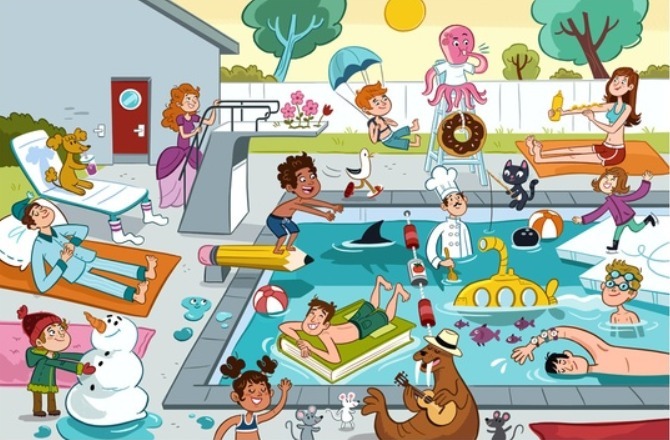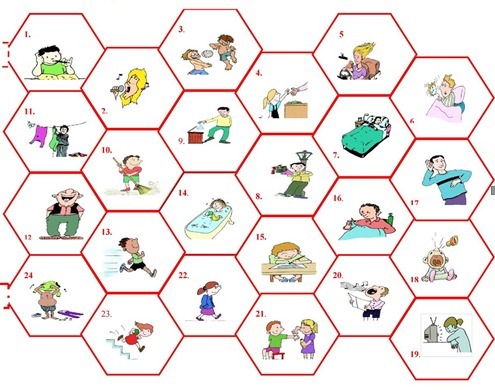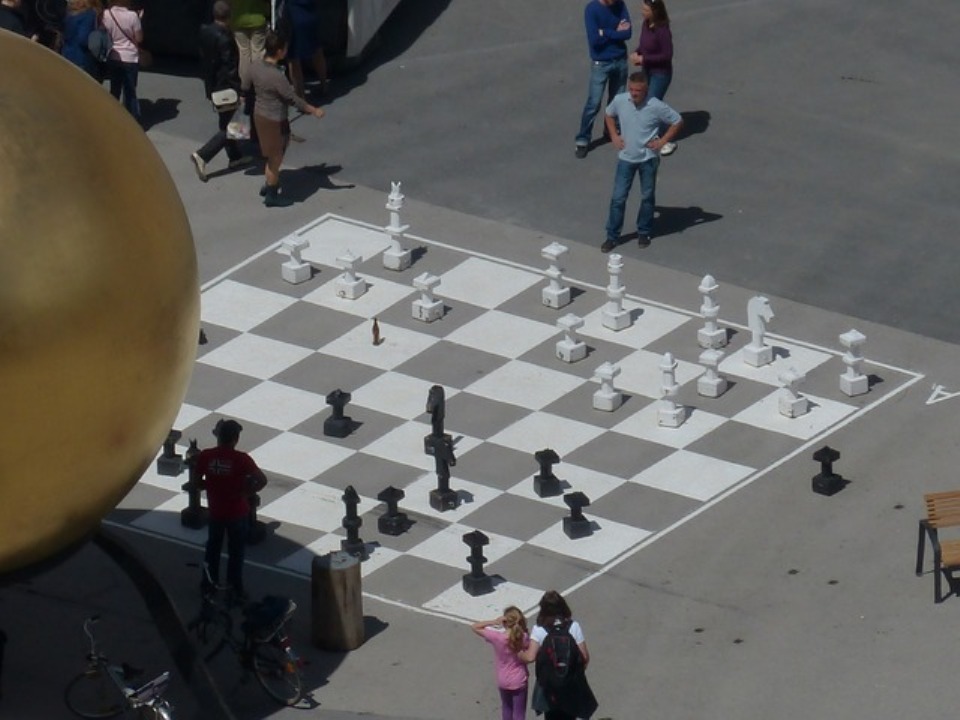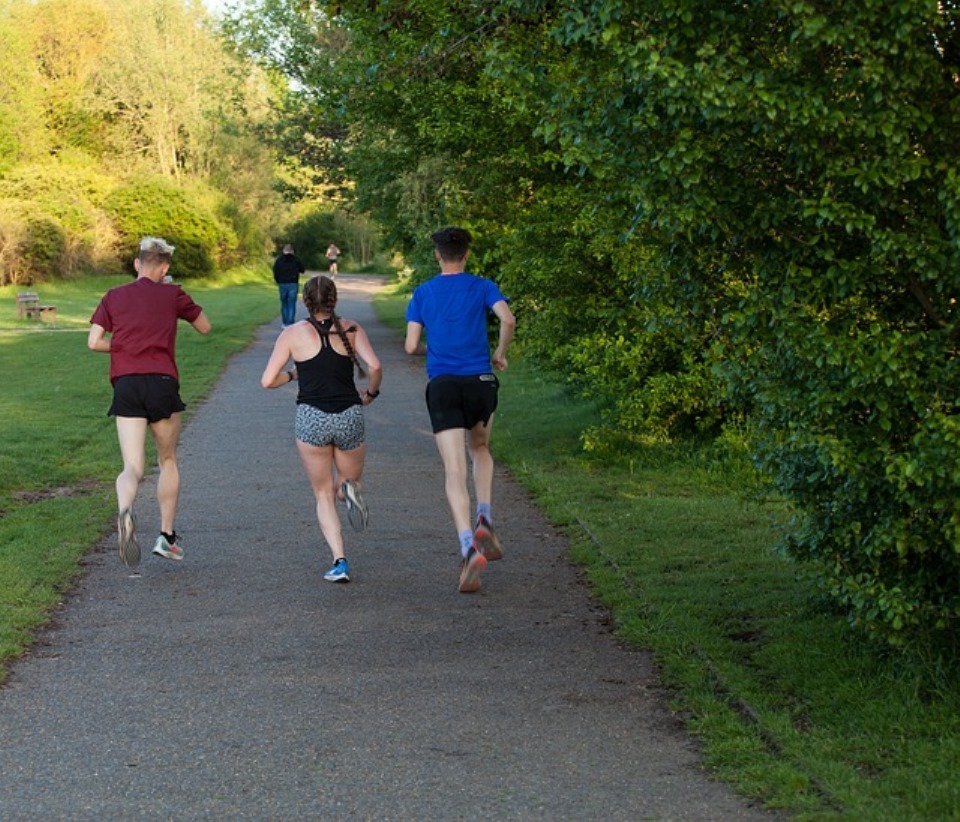
What are you doing? I am learning Spanish with P2T – ¿Qué estás haciendo? Estoy aprendiendo español con P2T
Some real examples of how to use the verb “to be” + verb ending in -ing when talking about actions taking place now (right now or at this point in your life). – Te mostramos algunos ejemplos del presente continuo “estar” + gerundio – verbo terminado en -ando (verbos -ar) / -iendo (verbos -er, -ir ) para expresar acciones que tienen lugar en el momento en el que hablamos (ahora mismo o en este momento de nuestras vidas).
If the videos are too quick for you, use the playback speed and captions buttons for slow motion and subtitles. It would help if you listened to Spanish people talking. If you are a complete beginner, join our Spanish Lessons and contact Susana for more information +34 661 74 36 45.
1. Conjugación – Conjugation, how do we form it?
1.1. Verbos regulares – Regular verbs
The PRESENT PROGRESSIVE or continuous is formed by combining the verb “to be” with the present participle. (“-ing” form of a verb.) – El presente progresivo o continuo se forma con el verbo “estar” y el gerundio de un verbo -AR (-ando) -ER, -IR (-iendo).

Yo estoy hablando con mi madre. (hablar > habl-ando)
I am talking to my mother.
Tú estás comiendo con tu hermano. (comer > com-iendo)
You are having lunch with your brother.
Nosotros estamos viviendo en España ahora. (vivir > viv-iendo)
We are living in Spain now.
1.2. Verbos irregulares – Irregular verbs
Some verbs have an irregular stem: o>u, e>i, iendo>yendo

In these examples, the “o” in dormir changes to “u” (morir-muriendo, poder-pudiendo) and the “e” in decir changes to “i” (servir-sirviendo, pedir- pidiendo). We add “yendo” instead of “iendo” to those verbs which infinitive root ends in a vowel, for instance, LE-ER becomes LE–yendo (caer-cayendo, traer-trayendo, oir-oyendo). Exception: reir-riendo, the “e” is dropped and we add “-iendo”. List of irregular verbs.
2. Usos – when do we use it?
2.1. To talk about actions taking place right now
¡Mira! Juan está echando una foto a un turista.
Look! Juan is taking a picture of a tourist.
2.2. To talk about actions taking place at this point of our lives
Juan está viajando por Australia.
Juan is travelling around Australia.
Se está quedando en un albergue.
He is staying at a youth hostel.
2.3. To talk about changing situations
El pueblo se está haciendo muy popular gracias a sus preciosas playas.
The town is becoming more and more popular because of its beautiful beaches.
3. No se usa – Do not use it when….
3.1. We do NOT use it for plans in the near future
In English, present progressive can describe what is happening now, or what will happen in the future. In Spanish, the present progressive is only used to describe an action that is in the process of taking place. It is not used for future actions.
He quedado con Bartolo esta noche.
I am meeting Bart tonight.
Voy a quedar con Bartolo esta noche.
I am going to meet Bart tonight.
3.2 We do not use it to describe what we are wearing now.
In English, the present progressive is used to describe what we are wearing. In Spanish, we use the present simple.
Llevo una falda roja y una camisa blanca.
I am wearing a red skirt and a white shirt.
4. Marcadores temporales – time expressions
- Right now – En este moment: Ahora, en este momento, hoy estoy trabajando duro (when we are still working). If we have already finished work, then we use present perfect, hoy he trabajado duro (jornada laboral terminada).
- At this point in your life – En este momento de tu vida: Actualmente, en la actualidad, hoy en día, esta semana, este mes, este año, últimamente, en la última década, en el último mes, estos días, ….
5. Ejercicios – Exercises
Answer these questions for each of the photos. *Note: list of verbs at the end of the page – Responde a estas preguntas para cada una de las fotografías. *Nota: listado de verbos al final de la página:
- ¿Qué está haciendo (él/ella)? Él/ella está…. porque….
- ¿Qué están haciendo (ellos/ellas)? Ellos/ellas están…. porque…
- What is he/she doing? He/she is…. because….
- What are they doing? They are… because….
- Ellos…
- Él…
- Ellos…
- Él…
- Ella…
- Ella…
- Ellos…
- Ella…
- Ellos…
- Ella…
- Ella…
- Ellos…
Nota: Los siguientes verbos te pueden ayudar a completar las frases: jugar al ajedrez / fumar / comer / pasear / correr / escalar / escuchar música / dormir / montar en bici-hacer ciclismo / cocinar / conducir / leer
Note: The following verbs can help you complete the sentences: TO… play chess / smoke / eat / walk / run / climb / listen to music / sleep / ride a bicycle-cycle / cook / drive / read
6. Ejercicios – Exercises
- Aprender español: Todos los ejercicios de gerundio
- Ejercicio 1 verbos regulares, seleccionar
- Ejercicio 3 verbos regulares, escribir
- Ejercicio 6 verbos regulares e irregulares, seleccionar
- Ejercicio 9 verbos irregulares, escribir
- Ejercicio 12 web francesa: https://www.espagnolfacile.com/
- Ejercicio 13 verbos regulares e irregulares, seleccionar, 214 frases
- Todo claro: Texto ¡Qué fin de semana!
- Todo claro: Todos los ejercicios de gramática
- Ejercicio 1 verbos regulares e irregulares, escribir
- Ejercicio 2 texto ¡Qué fin de semana!
- Study Spanish: test
- Spanish Unicorn: Todos los ejercicios de gerundio
7. Actividades de clase – Classroom activities
- La página del español: Todos los ejercicios de gerundio
- Ejercicio 1 Descargar documento – Download worsheet
- Ejercicio 2 Fotocopia clase
- Ejercicio 3 ¿Qué están haciendo estas personas?
- Ejercicio 4 ¿Qué están haciendo los Simpson en sus vacaciones?
- Ejercicio 5 Sigo estudiando español
- Ejercicio 6 Me rompí la pierna esquiando
- Piscina loca: Describe lo que está haciendo cada personaje.
- ¿Qué está haciendo el perro? BEBER: El perro está bebiendo un zumo de arándanos.
- ¿Qué está haciendo la princesa? SUBIR: La princesa….

- Beber
- Subir la escalera
- Saltar en paracaídas
- Pitar
- Vigilar
- Echarse/ponerse crema.
- Pescar
- Patinar
- Cocinar
- Nadar
- Bucear
- Tomar el sol
- Tocar la guitarra / el piano
- Bailar
- Hacer un muñeco de nieve
- Dormir/ Relajarse
- Descansar
- Saltar del trampolín
- Juego de la oca: Describe lo que está haciendo cada personaje.

- Estudiar
- Cantar
- Jugar a…
- Pagar
- Conducir
- Sonar
- Dormir
- Esperar
- Tirar la basura
- Barrer
- Tender
- Reirse
- Correr
- Bañarse
- Estudiar
- Coser
- Escuchar / Oir
- Llorar
- Ver
- Cantar
- Curar
- Pasear / caminar /andar
- Bajar /subir
- Ducharse/Secarse /arreglarse
- Traduce este diálogo al español y envíanoslo en un comentario para que lo corrijamos.
- Q: What are you doing?
- A: Not much. Just checking Facebook again.
- Q: Where are you living these days?
- A: I’m staying with some friends. I hope to find my own place soon.
- Q: Is María going out with Tom?
- A: Yeah, but I think she’s going to break up with him.
- Q: Are you enjoying your new job?
- A: Yeah, it’s great. My co-workers are a lot of fun, and I’m learning a lot.
- Q: Are you reading any good books these days?
- A: Yeah, I’m reading a very interesting book about history.
- Q: Are you feeling better?
- A: Yeah, I’m feeling great! I was only sick for a day or two.
And remember!! Practice makes perfect
Come to practise with Spanish native speakers in our >> Off The Cuff Talks! << be brave and ask them ¿Qué estás haciendo?
Did you find it useful? Then, please… FEEL FREE TO SHARE IT!
Do you have any doubts or even a contribution? Please fill out the form at the bottom, and we will get back to you asap⏬
Join our Spanish lessons in Mil Palmeras, Sucina (Casas Blancas) y online.
This is just a small example of what you can learn. Get the support of the best Spanish Tutor in the area, Susana Romero, and enjoy learning Conversational Spanish.












